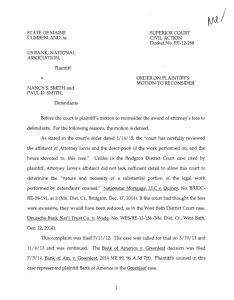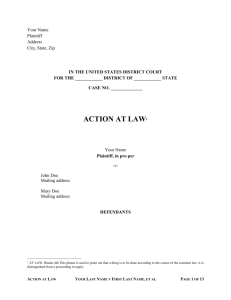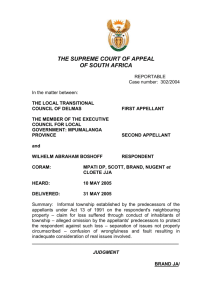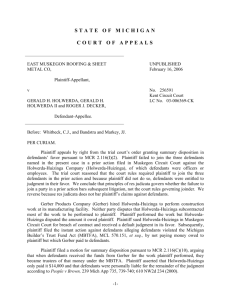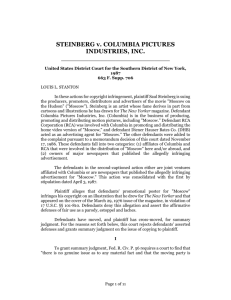Suing in State Court for State Claims
advertisement
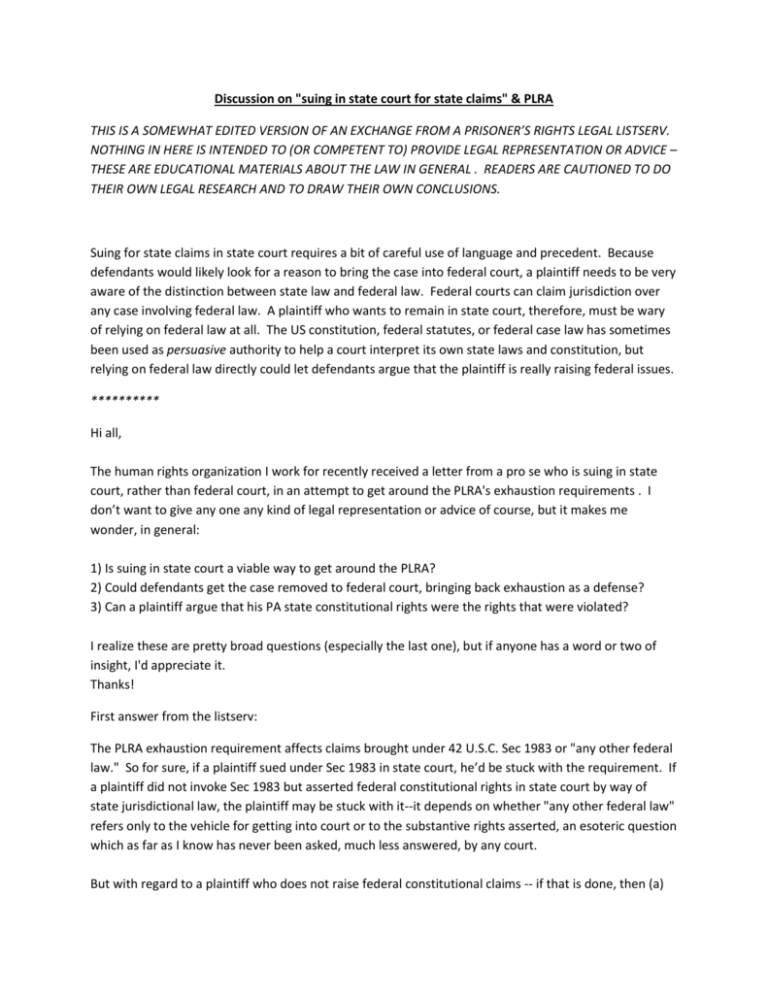
Discussion on "suing in state court for state claims" & PLRA THIS IS A SOMEWHAT EDITED VERSION OF AN EXCHANGE FROM A PRISONER’S RIGHTS LEGAL LISTSERV. NOTHING IN HERE IS INTENDED TO (OR COMPETENT TO) PROVIDE LEGAL REPRESENTATION OR ADVICE – THESE ARE EDUCATIONAL MATERIALS ABOUT THE LAW IN GENERAL . READERS ARE CAUTIONED TO DO THEIR OWN LEGAL RESEARCH AND TO DRAW THEIR OWN CONCLUSIONS. Suing for state claims in state court requires a bit of careful use of language and precedent. Because defendants would likely look for a reason to bring the case into federal court, a plaintiff needs to be very aware of the distinction between state law and federal law. Federal courts can claim jurisdiction over any case involving federal law. A plaintiff who wants to remain in state court, therefore, must be wary of relying on federal law at all. The US constitution, federal statutes, or federal case law has sometimes been used as persuasive authority to help a court interpret its own state laws and constitution, but relying on federal law directly could let defendants argue that the plaintiff is really raising federal issues. ********** Hi all, The human rights organization I work for recently received a letter from a pro se who is suing in state court, rather than federal court, in an attempt to get around the PLRA's exhaustion requirements . I don’t want to give any one any kind of legal representation or advice of course, but it makes me wonder, in general: 1) Is suing in state court a viable way to get around the PLRA? 2) Could defendants get the case removed to federal court, bringing back exhaustion as a defense? 3) Can a plaintiff argue that his PA state constitutional rights were the rights that were violated? I realize these are pretty broad questions (especially the last one), but if anyone has a word or two of insight, I'd appreciate it. Thanks! First answer from the listserv: The PLRA exhaustion requirement affects claims brought under 42 U.S.C. Sec 1983 or "any other federal law." So for sure, if a plaintiff sued under Sec 1983 in state court, he’d be stuck with the requirement. If a plaintiff did not invoke Sec 1983 but asserted federal constitutional rights in state court by way of state jurisdictional law, the plaintiff may be stuck with it--it depends on whether "any other federal law" refers only to the vehicle for getting into court or to the substantive rights asserted, an esoteric question which as far as I know has never been asked, much less answered, by any court. But with regard to a plaintiff who does not raise federal constitutional claims -- if that is done, then (a) there is no way that the PLRA exhaustion requirement could apply to that plaintiff, and (b) his case can't be removed to federal court since there is no federal issue in it (presuming no diversity of citizenship issue—if the plaintiff is a resident of the state where he was imprisoned, suing officials of that same state). Of course that wouldn't prevent the defendants from asserting that the plaintiff is raising federal constitutional claims and removing the case. Whether the exhaustion requirement would then apply depends on resolution of the above mentioned esoteric question. There is no reason a plaintiff cannot assert PA constitutional law in PA courts. The complication comes if he tries to use federal court precedent to argue his state constitutional case. That situation requires a plaintiff to be very careful to keep the line drawn and keep saying that federal court precedent is used solely for the purpose of arguing how the PA courts should interpret their own constitution. Then the defendants will be in the position arguing that since he is saying there should be no difference between state constitutional law and federal constitutional law, there _is_ no difference and he is raising federal claims and the case should be removable. If the prisoner makes his position clear and sticks to it, he should in theory win that argument, though the whole controversy is so abstract I wouldn't make any bets about it. Back in the 1980s, I think, there was some controversy when the US Supreme Court took certiorari in a couple of cases in which state supreme courts interpreted their constitutions more favorably to criminal defendants or other unpopular litigants than did federal courts interpreting the federal constitution. A great cry arose that the Supreme Court was illegitimately trying to impose its reactionary views on progressive state courts interpreting their own law. I forget what the end of that controversy was, but there might be something useful there for this question. Does anybody remember what if anything ultimately happened with those cases? From another person on the listserv: The criminal defendants lost-- I think one of the cases was Michigan v Long giving a twisted interpretation to the adequate and independent state ground doctrine-- essentially stating that unless the state court, as it does often in New Jersey, says that "we are citing federal law as a useful aid but do not rely on as precedent to interpret our own constitution because we have our own case law that provides ample precedent" there is not an adequate and independent state ground.

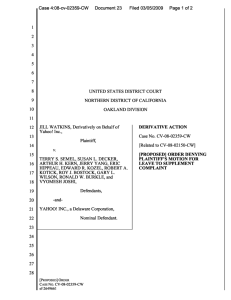


![[2012] NZEmpC 75 Fuqiang Yu v Xin Li and Symbol Spreading Ltd](http://s3.studylib.net/store/data/008200032_1-14a831fd0b1654b1f76517c466dafbe5-300x300.png)


